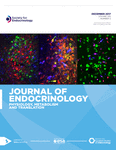Vascular adaptation in pregnancy and endothelial dysfunction in preeclampsia
- D Boeldt, Ob/Gyn, University of Wisconsin-Madison, Madison, 53706, United States
- I Bird, Ob/Gyn, University of Wisconsin Madison, Madison, United States
- Correspondence: Ian Bird, Email: imbird{at}wisc.edu
Abstract
Maternal vascular adaptation to pregnancy is critically important in order to expand the capacity for blood flow through the uteroplacental unit to meet the needs of the developing fetus. Failure of the maternal vasculature to properly adapt can result in hypertensive disorders of pregnancy such as preeclampsia (PE). Herein, we review the endocrinology of maternal adaptation to pregnancy and contrast this with that of PE. Our focus is specifically on those hormones with directly impact endothelial cell function and dysfunction, as endothelial cell dysfunction is a hallmark of PE. A variety of growth factors and cytokines are present in normal vascular adaptation to pregnancy but have also been shown to be circulating at abnormal levels in PE pregnancies. Many of these factors promote endothelial dysfunction when present at abnormal levels by acutely inhibiting key Ca2+ signaling events and chronically promoting the breakdown of endothelial cell-cell contacts. Increasingly, our understanding of how the contributions of the placenta, immune cells, and the endothelium itself promote the endocrine milieu of PE is becoming more clear. We then describe in detail how the complex endocrine environment of PE effects endothelial cell function, why this has contributed to the difficulty in fully understanding and treating this disorder, and how a focus on signaling convergence points of many hormones may be a more successful treatment strategy.
- Received 22 July 2016
- Received in final form 3 October 2016
- Accepted 11 October 2016
- Accepted Preprint first posted online on 11 October 2016











